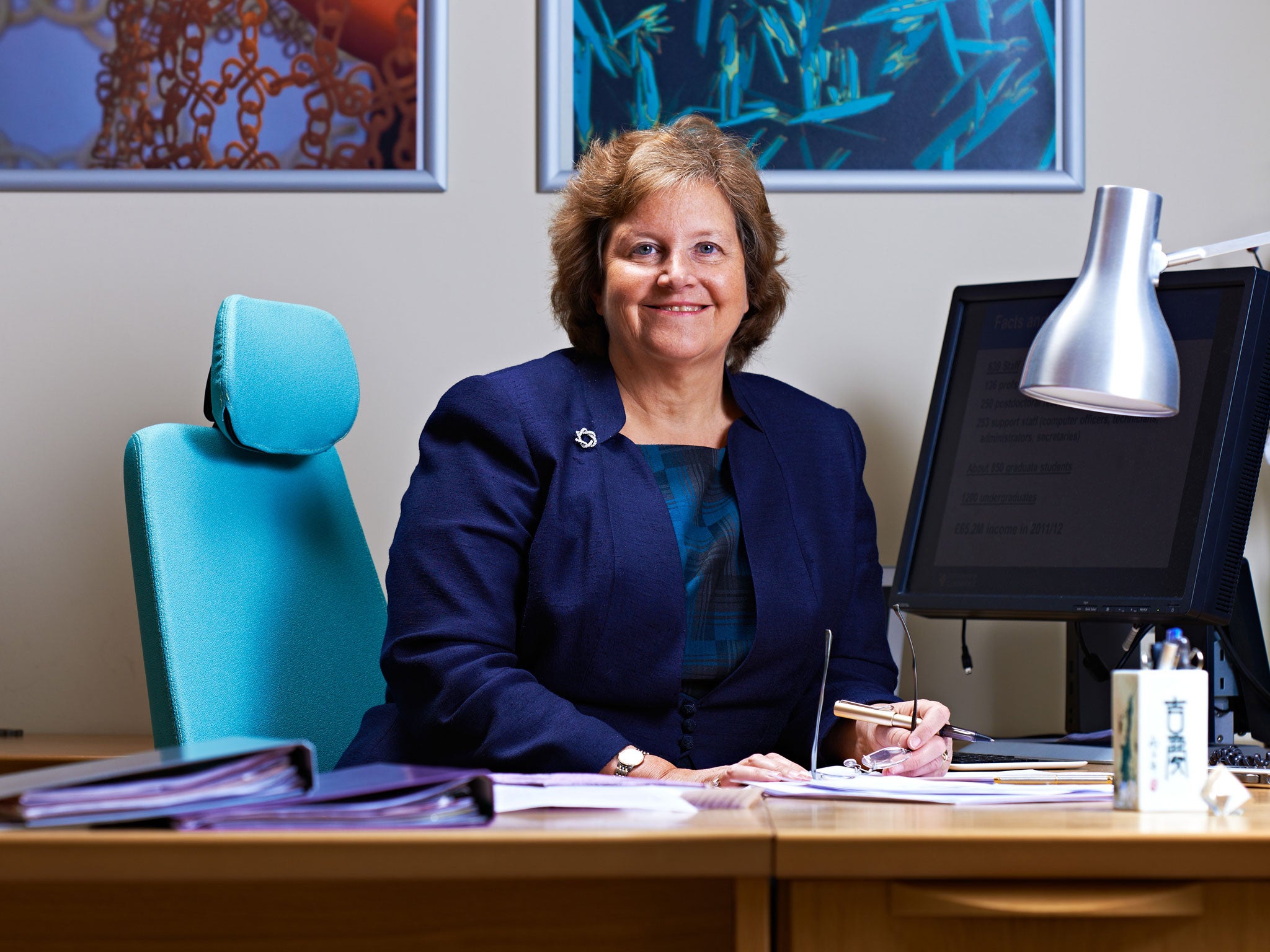Lack of fellow women baffles top British engineer Dame Ann Dowling
Concorde engineer says her profession is perfect for girls

Helping to design a “single-wing” airliner and developing some of the lowest-emission jet engines, Dame Ann Dowling’s impressive career has already seen her recognised for her services to science with a DBE.
As head of the Department of Engineering at Cambridge University, she is one of Britain’s most eminent engineers. Yet while Professor Dowling might know all there is to know about aviation, combustion and acoustics, she is “baffled” by why so few women follow the engineering path. Later this year the professor is set to make history as the first female president of the Royal Academy of Engineering.
She doesn’t need her skills as a mathematician and mechanical engineer to see that most of the academy’s 1,500 fellows are men; fewer than five per cent are women.
This reflects the national situation; fewer than 8 per cent of engineers in Britain, and only 17 per cent of engineering students, are women.
“The figures are stark, terrible in fact,” Professor Dowling said. “I think sometimes there is a perception that you have to get your hands dirty .... Whereas, really, the tool engineers use most is their brain.”
Last week, Professor Dowling, who worked on Concorde, was quoted telling parents to buy Lego for their daughters, to encourage them to mend bikes and not to be afraid of getting mucky. It is good advice, she said, but was more of a “flippant aside that got built into a headline” than a policy recommendation for the Government.
Now she focuses on education and outreach. For example, she is full of praise for the Government working with the RAE on its Engineering for Growth campaign.
But she is critical of the role the education sector plays. “At GCSE level there are just as many girls as boys studying physics, which is central to any career in engineering,” she said. The “problem” is, “girls are not choosing to continue with physics” at A-level.
This is backed up by a recent Institute of Physics study which showed that half of A-Level physics classes in UK state schools were made up entirely of boys.
Professor Dowling doesn’t think engineers “do enough” to communicate how “people-centric” a job in engineering can be. “When big projects go wrong, more often than not it’s ...because the team on the job didn’t talk to one another.”
The study also showed that in single-sex schools, more girls go on to study physics to A-level. The professor put this down to “peer pressure”.
The solution, she says, is an education system, such as the baccalaureate, that doesn’t allow 16-year-olds to ditch maths and science. “Sadly this appears to be a UK-specific problem ... in Sweden, for example, 25 per cent of professional engineers are women, while in France, Italy and Norway that figure is 20 per cent.”
It’s not just women, though; a report last year from the Social Market Foundation highlighted an annual shortage of up to 40,000 graduates of either gender in science, engineering and maths.
“There is no hiding it,” Professor Dowling said. “Industry is crying out for more people.”
Life in brief: Dame Ann Dowling
- Born: 1952
- Education: University of Cambridge
- Career: First female professor at Cambridge’s engineering department in 1998. Now head of Department. Fellow of the Royal Academy of Engineering and the Royal Society
- Research: Combustion, acoustics and vibration
Subscribe to Independent Premium to bookmark this article
Want to bookmark your favourite articles and stories to read or reference later? Start your Independent Premium subscription today.

Join our commenting forum
Join thought-provoking conversations, follow other Independent readers and see their replies